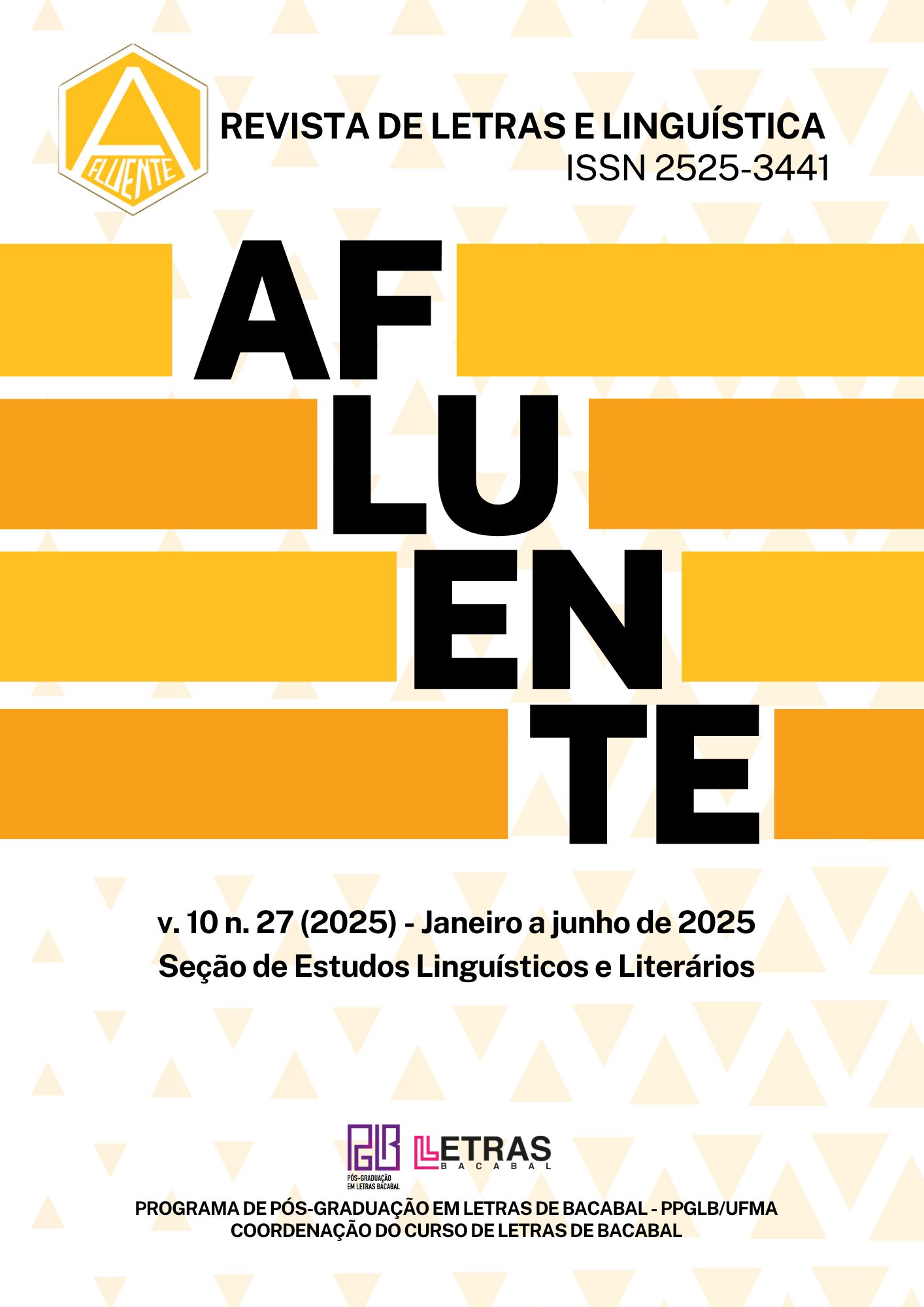El tiempo que atraviesa la memoria y el espacio que inscribe la Resistencia:
un análisis de la película “Aún estoy aquí” (2024)
DOI:
https://doi.org/10.18764/2525-3441v10n27.2025.06Palabras clave:
cronotopo, cine, opresión, resistenciaResumen
Este articulo propone un análisis de la película “Aún Estoy Aquí” (2024) a la luz del concepto de cronotopo, formulado por Mikhail Bakhtin a partir de su lectura de Dostoiévski. La investigación explora cómo el tiempo y el espacio cinematográficos estructuran la narrativa, materializando experiencias sociales marcadas por múltiples capas de opresión y resistencia. Partimos de la premisa de que el cine no es un simple espejo de la realidad, sino un espacio de inscripción simbólica y política, en el que cuerpos, voces y silencios se organizan en una cartografía afectiva e histórica. Para ello, adoptamos una metodología cualitativa e interpretativa, conforme a Minayo (2001) y Silveira y Córdova (2009), con el objetivo de describir las relaciones sociales y las capas de opresión presentes en la película. A partir del análisis de tres escenas específicas, investigamos cómo los cronotopos de la gran ciudad, del encuentro inesperado y del confinamiento operan en la construcción del sentido de pertenencia, revelando la interacción entre territorios físicos y subjetivos, así como entre el tiempo de la memoria y el tiempo de la espera. Los resultados indican que la yuxtaposición de espacios y temporalidades en la película no solo compone su estética narrativa, sino que también denuncia las dinámicas de exclusión y resistencia que estructuran la realidad de los sujetos representados. De esta manera, se reafirma el cine como un campo de disputa simbólica, en el que el tiempo se convierten en elementos centrales en la construcción de existencias e identidades.
Descargas
Citas
AMORIM, Marília. Cronotopo e exotopia. In: BRAIT, Beth (org.). Bakhtin: outros conceitos-chave. 2. Ed., 2ª reimpressão. São Paulo: Contexto, 2023, p. 95-114.
AUMONT, Jacques; BERGALA, Alain; MARIE, Michel; VERNET, Marc. A estética do filme. Tradução de Marina Appenzeller. 7ª ed. Campinas: Papirus, 2009.
AINDA estou aqui. Direção: Walter Salles. Produção: O2 Filmes; Globo Filmes. Brasil: Sony Pictures, 2024. 1 vídeo (135 min.), son., color.
BAKHTIN, Mikhail. Questões de Literatura e de Estética. Tradução de Aurora Fornoni Bernardini, José Pereira Júnior, Augusto Góes Júnior, Helena Spryndis Nazário Homero Freitas de Andrade. São Paulo: UNESP, 1988.
BAKHTIN, Mikhail. O autor e o herói. In: Estética da criação verbal. 2.ed. São Paulo: Editora Martins Fontes, 1997, p. 23-220.
BAKHTIN, Mikhail. Estética da Criação Verbal. São Paulo, Ed. Martins Fontes, 2003.
BAKHTIN, Mikhail. Marxismo e filosofia da linguagem. Tradução Michelaud e Yara Frateschi Vieira. São Paulo: Hucitec, 2006.
BAKHTIN, Mikhail. Problemas da Poética de Dostoievski. Tradução Paulo Bezerra. Rio de Janeiro: Forense Universitária, 2008.
BAKHTIN, Mikhail. As formas do tempo e do cronotopo no romance. In: Teoria do romance II: as formas do tempo e do cronotopo. São Paulo: Editora 34, 2018, p.11-236.
DI CAMARGO, Ivo Júnior. Mikhail Bakhtin na linguagem cinematográfica. São Paulo: Mentes Abertas, 2020.
FIORIN, José Luiz. Introdução ao pensamento de Bakhtin. São Paulo: Ática, 2006.
LEAL, José Luciano Marculino. Discurso na vida e na arte: Leituras dialógicas do discurso religioso cristão no filme ressurreição. 2023. 257 f. Tese (Doutorado em Linguística pelo Programa de Pós-Graduação em Linguística) – Centro de Humanas, Letras e Artes, Universidade Federal da Paraíba, 2023.
MINAYO, Maria Cecília de Souza (org.). Pesquisa social: teoria, método e criatividade. Petrópolis: Vozes, 2001.
PAIVA, Marcelo Rubens. Ainda estou aqui. 1. ed. Rio de Janeiro: Alfaguara, Companhia das Letras, 2015.
REZENDE, Bibiana Anjos. Entre luto e ativismo: um (des) encontro de cronotopos no filme Orações para Bobby (2009). Revista Diálogos, v. 11, n. 3, p. 115 –133, 2024. Disponível em: https://periodicoscientificos.ufmt.br/ojs/index.php/revdia/article/view/16007. Acesso em: 28 mar. 2025.
SILVEIRA, Denise Tolfo; CÓRDOVA, Fernanda Peixoto. A pesquisa científica. In: Métodos de pesquisa. Porto Alegre: Editora da UFRGS, 2009. p. 31- 42.
SOBRAL, Adail. Filosofias (e filosofia) em Bakhtin. In: BRAIT, Beth. (org.). Bakhtin: Conceitos-Chave. 5. Ed., 7ª reimpressão, São Paulo: Contexto, 2021, p. 123 – 150.
STAM, Robert. Bakhtin: Da teoria literária à cultura de massa. Tradução de Heloísa Jahn. Editora Ática: São Paulo, 1992.
TURNER, Graeme. Cinema como prática social. Tradução Mauro Silva. São Paulo: Summus, 1997.
VOLÓCHINOV, Valentin. Marxismo e Filosofia da Linguagem: Problemas Fundamentais do Método Sociológico na Ciência da Linguagem. Tradução de Sheila Grillo e Ekaterina Vólkova Américo. 1ª ed. São Paulo: Editora 34, 2017.
Descargas
Publicado
Cómo citar
Número
Sección
Licencia
Derechos de autor 2025 Afluente: Revista de Letras e Linguística

Esta obra está bajo una licencia internacional Creative Commons Atribución 4.0.
Direitos autorais Afluente: Revista Eletrônica de Letras e Linguística
Este trabalho está licenciado com uma Licença Creative Commons - Atribuição 4.0 Internacional.














